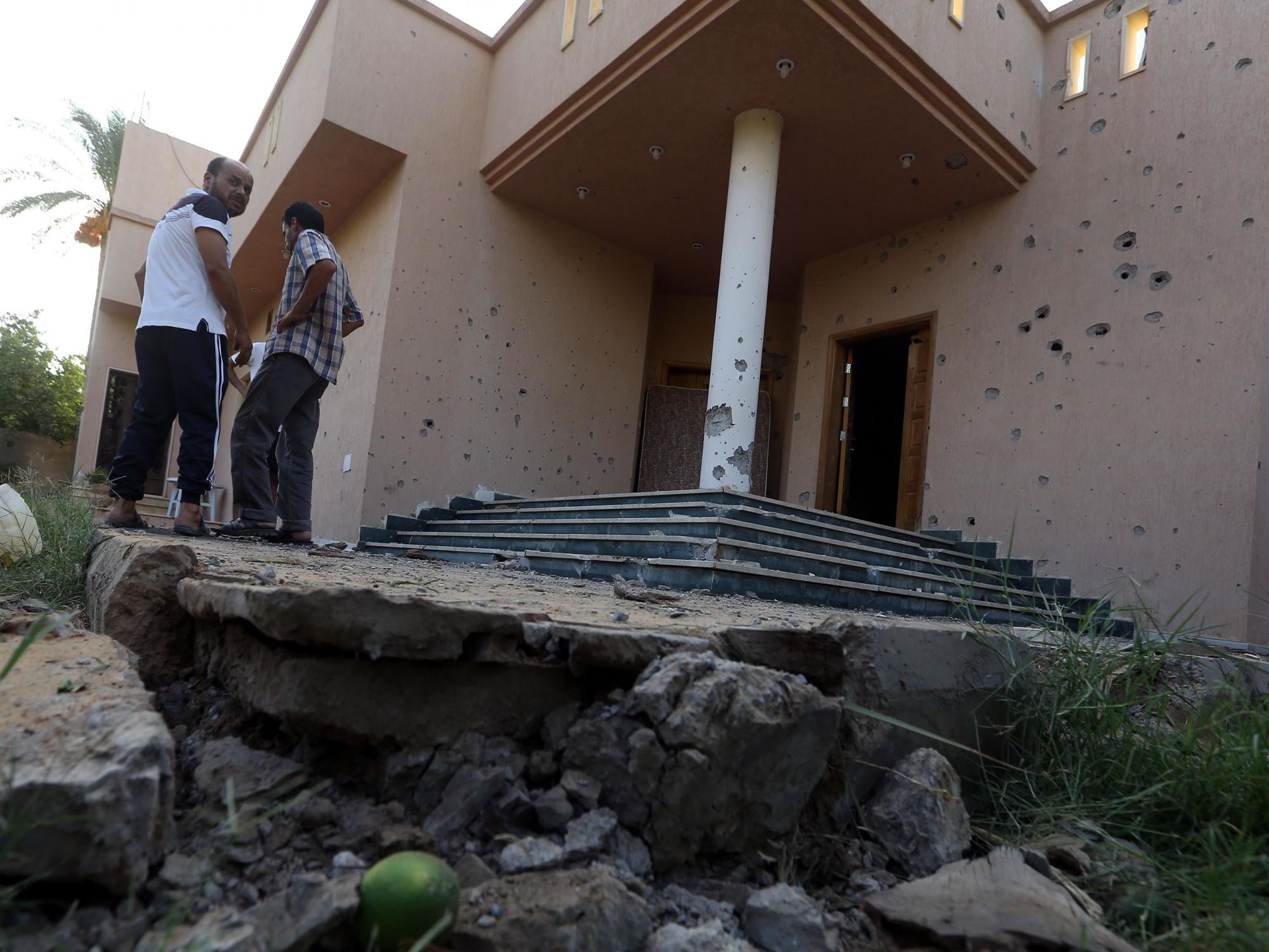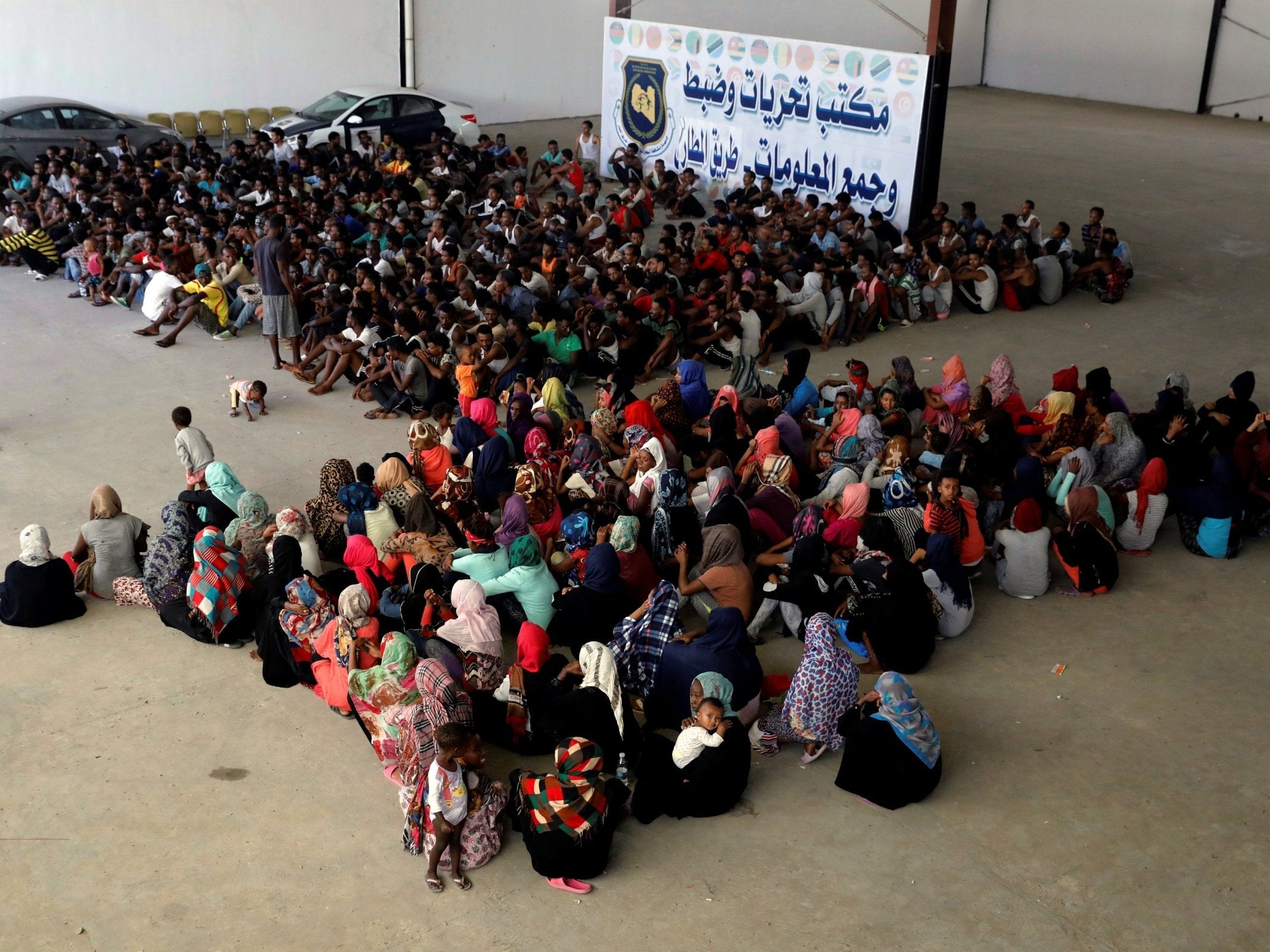Libya: 30 dead in Tripoli militia clashes as rights groups warn refugees and migrants caught up in crossfire
'Thousands' of vulnerable migrants and refugees have been abandoned and left without food and water, rights groups say, as clashes rock capital

Your support helps us to tell the story
From reproductive rights to climate change to Big Tech, The Independent is on the ground when the story is developing. Whether it's investigating the financials of Elon Musk's pro-Trump PAC or producing our latest documentary, 'The A Word', which shines a light on the American women fighting for reproductive rights, we know how important it is to parse out the facts from the messaging.
At such a critical moment in US history, we need reporters on the ground. Your donation allows us to keep sending journalists to speak to both sides of the story.
The Independent is trusted by Americans across the entire political spectrum. And unlike many other quality news outlets, we choose not to lock Americans out of our reporting and analysis with paywalls. We believe quality journalism should be available to everyone, paid for by those who can afford it.
Your support makes all the difference.At least 30 people have been killed in Libya amid fierce militia fighting in Tripoli that has left thousands of migrants and refugees trapped in government-run detention centres without food or water.
Clashes first erupted in the southern suburbs of the Libyan capital on Monday between rival brigades that are supposed to operate under the recognised defence ministry.
At least 30 people have now been killed and 96 wounded, according to the local health ministry, despite appeals by the United Nations for calm.
Doctors Without Borders (MSF) said on Friday that an additional 8,000 migrants and refugees were at risk after they were abandoned in their cells in the middle of the chaotic battlefield.
The medical charity said that some people were left without access to food for more than 48 hours when guards fled heavy shelling. Other migrants who were released had no choice but to flee to nearby neighbourhoods where they were at risk of being caught in the crossfire.
“The recent fighting demonstrates that Libya is not a safe place for migrants, refugees and asylum seekers,” said Ibrahim Younis, MSF’s head of mission in Libya.
“Many have fled from wartorn countries or have spent months in horrible conditions… These people are already extremely vulnerable, and now they find themselves trapped in yet another conflict without the ability to escape,” he added.
On Thursday the UN’s refugee agency said it had helped rescue some 300 migrants – who hailed from Eritrea, Ethiopia and Somalia – to a comparatively safer location within the city.
Libya’s UN-recognised authority, the Government of National Accord (GNA), has struggled to maintain a grip on Tripoli and to subdue gangs of ex-rebels since first taking power in the capital in 2016.
The embattled government also faces opposition in the east of the country which is loyal to powerful military commander Khalifa Haftar and a rival cabinet.
People traffickers have flourished amid the chaos, exploiting the total breakdown in security to bolster their lucrative networks. Since 2014, more than half a million migrants and refugees have set sail for Europe from Libya in rickety boats.
But as Europe and the Libyan authorities have cracked down on the illegal trade, thousands of migrants now remain behind bars in squalid detention centres in Libya.
The methods have sparked furious fights between Europe and charity organisations like MSF, which run rescue operations in the Mediterranean. Rights groups argue that it is not safe to keep migrants in wartorn Libya.
The latest violence in Tripoli first flared on Monday between forces loyal to the GNA and the 7th Brigade, from Tarhuna southeast of the capital, which is also supposed to be part of the defence ministry.
In a televised speech this week, Fayez al-Sarraj, the country’s recognised leader, disowned the 7th Brigade, saying that it had been “dissolved”.

In a desperate attempt to bring calm, al-Sarraj ordered in more brigades from the neighbouring towns of Misrata to the west and Zintan to the south, to try to guarantee the withdrawal of other militias within the capital.
He said these military units will be allowed to operate in the capital and its environs only until 30 September when they must leave.
In a joint statement, the embassies of Britain, France, Italy and the United States said they were “deeply concerned about the recent clashes in and around Tripoli that are destabilising the situation”.
“Those who undermine Libya’s peace, security and stability will be held accountable,” the statement read.
The Libyan government and the UN had hoped to unify the country by holding parliamentary elections at the end of the year. But attempts to move forward with the process have been dogged by battles between the myriad armed factions in the country.
Join our commenting forum
Join thought-provoking conversations, follow other Independent readers and see their replies
Comments